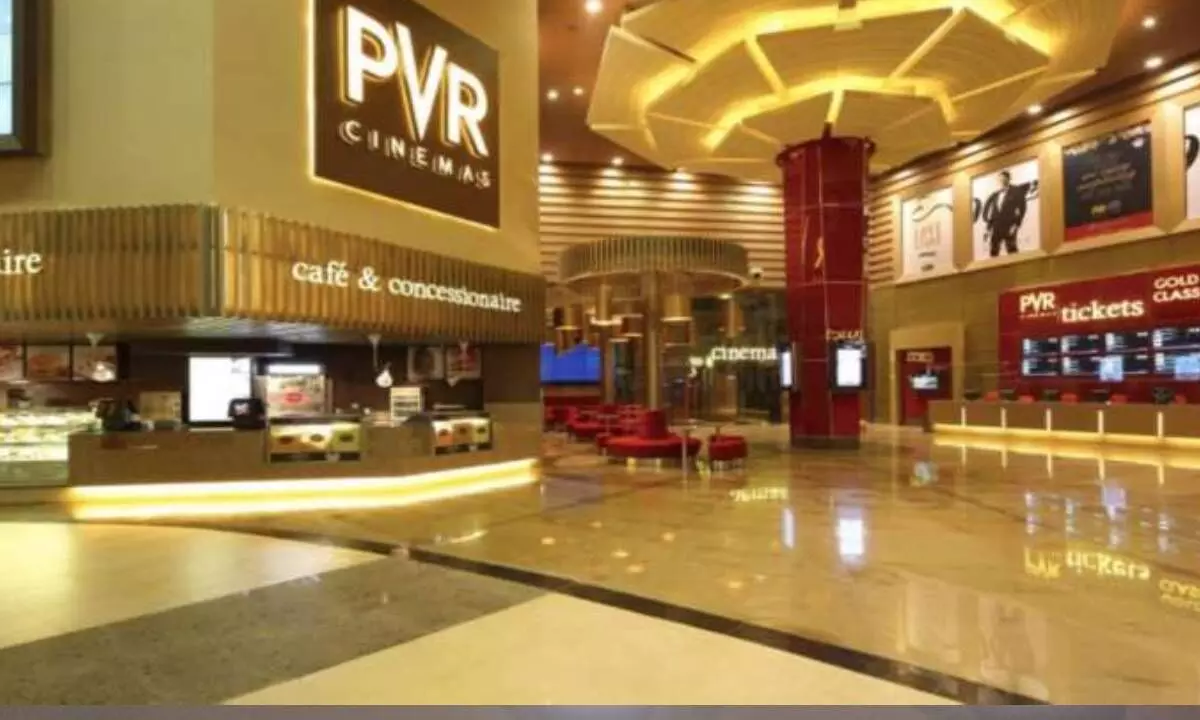PVR-INOX merger worry producers on revenue share, high ticket prices
The merger between PVR and INOX, the top two multiplex players, has left film producers worried. They fear the merger will affect the release of regional films on the big screen, lead to higher ticket prices and encourage exhibitors to seek a higher revenue share.
image for illustrative purpose

The merger between PVR and INOX, the top two multiplex players, has left film producers worried. They fear the merger will affect the release of regional films on the big screen, lead to higher ticket prices and encourage exhibitors to seek a higher revenue share.
Filmmaker and producer Akshay Bardapurkar, who is also the founder of the streaming platform Planet Marathi, pointed out that with negotiations for distribution in the hands of a dominant entity, the entire film ecosystem, especially the growing regional cinema industry, will be impacted.
"For instance, Marathi cinema has just begun getting its due. With this merger, will regional filmmakers and producers be overpowered by distribution budget constraints? Are only larger entities with mega budgets entitled to silver screens," he questioned.
Last year, a Gujarati film titled Chhello Show, which was scheduled to release in December, was postponed to 2022 due to non-availability of screens. In a social media post, Writer-director Pan Nalin said that exhibitors did not keep their promises and preferred showing a big-budget Bollywood film in their cinemas.
The shutdown of theatres for many months due to the Covid pandemic, and the capacity restrictions that followed after reopening, led to delays in the release of many big-budget films, including RRR and Sooryavanshi. With producers of such films rushing to pick up release dates, the makers of smaller films are concerned they will not get enough screens and will be clashing with big-budget ventures.
Ticket prices may surge
Along with the distribution budget, producers are also worried about ticket prices increasing after the merger. Arjun Singgh Baran and Kartk D Nishandar, Founders of GSEAMS, a film studio, said that there will be a challenge if there is an increase in ticket prices.
Bardapurkar said that "with costing and pricing being largely confined to the most dominant player, we are worried about the accessibility of films for the common man, the average movie-goer."
In an earlier interview, co-founder of NV Capital, a credit fund for the media and entertainment sector, had noted that ticket prices are likely to go up in North and West India after the PVR-INOX merger.
But Karan Taurani, Senior Vice-President of Elara Capital, expects ticket prices to go up nominally, in step with inflation, as a steep increase will affect footfalls. He also pointed out that INOX, which is at a 5 percent discount compared to PVR in terms of the average ticket price (ATP), is expected to be on par with its merger partner.
The ATP for PVR dropped to Rs 180 from Rs 204 and for INOX to Rs 170 from Rs 200 in financial year 2021.
While the PVR-INOX merger may not bring any changes in the revenue sharing arrangement, Bardapurkar said that if there are negotiations over revenue sharing (with exhibitors asking for a higher share), regional players may have to look at their options. Hinting at filmmakers and producers taking the direct-to-digital release route, he added that film distribution not being restricted to cinemas is encouraging for content creators.
Over the last two years, many film studios and directors have directly released their films on over-the-top (OTT) platforms due to the COVID-induced closure of theatres for many months. In the first half of 2021, around 26 Hindi films that were originally conceived for theatrical release had streamed directly on OTT platforms.
Analysts note that any hike in the distributor share by exhibitors will be taken negatively by producers and film studios as they have the option of going directly to OTT platforms for film releases.

